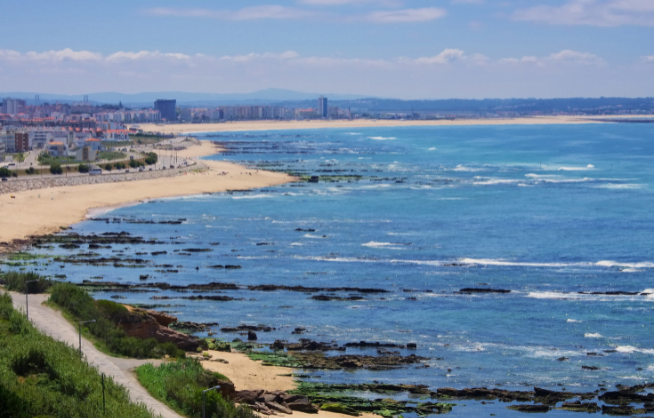Buy House in Figueira da Foz

Want to buy a house in Figueira da Foz? Have you visited our beautiful town and its beaches and fell in love with it? We want to help you find the perfect house! Let us know exactly what you want and we will find it for you! The best part is that the service is completely free and you won't be obliged to buy or rent any of the properties we present you with!
Why Move to Figueira da Foz?
Nestled within the embrace of the Mondego River estuary, Figueira da Foz emerges as a hidden gem, where the echoes of time resonate through its storied streets. This charming haven has lured inquisitive souls from myriad civilizations over the ages. Its historical tapestry unfurls with threads stretching back to prehistoric times, interwoven with the indelible imprints of the Romans who once graced its shores, leaving behind remnants of their Vibia family coins and the legacy of Emperor Octavian Mayus.
However, as the annals of history unfurled, Figueira da Foz bore witness to destruction, its very essence nearly extinguished by the relentless Saracens in 717. Yet, from the ashes rose a savior, the Mozarabic Earl Sesnando, who, hailing from the ancestral town of Tentúgal, initiated the Christian reconquest, breathing life back into this coastal haven, establishing it as a thriving seaport. The Monastery of Santa Cruz de Coimbra, with a discerning eye for strategic potential, began to populate these fertile lands, marking the onset of the 11th century.
Through the centuries, a succession of benevolent monarchs bestowed their favors upon this coastal gem. The Monastery of Santa Cruz de Coimbra and the Church of Santa Maria de Coimbra were the beneficiaries of royal largesse, their endowments expanding the territorial boundaries of Figueira da Foz, encompassing domains stretching from Redondo to Lavos, from Quiaios to Tavarede, and beyond.
The 13th century witnessed the maturation of this town, as the Cathedral of Coimbra assumed ownership of additional lands, paving the way for its relentless expansion. It was in 1342, under the graciousness of King Afonso IV, that Buarcos received its charter. King Pedro, ever perceptive, entrusted the governance of Tavarede and Figueira to the Mitra and Chapter of the Cathedral of Coimbra, fostering an environment of stability and progress.
Amid the transformative 15th century, the caravels of Buarcos unfurled their sails to brave the tempestuous seas towards Ceuta, a testament to their burgeoning maritime prowess. Prince John (II) himself received the mantle of authority over Buarcos, both civil and criminal, from his father, King Afonso V. Yet, these endeavors were not without peril, as the specter of pirate incursions haunted these resilient inhabitants throughout the 16th and 17th centuries, culminating in the construction of the steadfast Santa Catarina Fortress, a sentinel guarding their dreams.
In the 18th century, the visionaries of progress championed Figueira da Foz, as King Joseph, in his wisdom, anointed the town with the distinguished status of a Villa in 1771. The Cabo Mondego mine began yielding its treasures in 1773, while the advent of the railway and the Pampilhosa-Figueira road expedited its growth. Junot's Napoleonic forces occupied the Fort of Santa Catarina in 1807, casting a pall over the city. However, the valor of a resolute band, led by the academic António Bernardo Zagalo, would retake the fortress a year later, kindling the sparks of resilience.
In the 19th century, Figueira da Foz's maritime prowess and shipbuilding industry surged, propelling it into a period of unprecedented growth and prosperity. The city's population burgeoned, nearly doubling, and the alluring golden sands of the Figueira Coast began to beckon the aristocracy, breathing fresh life into the local economy. The opulent Spaniards also sought refuge on these shores, their presence etched in the annals of the casino. On the 20th of May, 1882, Figueira da Foz was adorned with the illustrious status of a city, a testament to its enduring spirit and unwavering perseverance.
Figueira da Foz beckons, not merely as a dwelling place but as a living museum of history, artfully preserved amidst a modern landscape. Its pristine beaches, teeming with the splendors of the Atlantic, weave seamlessly into the tapestry of its vibrant cultural heritage, creating an atmosphere where the past and present intertwine harmoniously. This city is more than a home; it is an enchanting voyage through time, a treasure trove of natural beauty, a symphony of history and modernity. It is an irresistible call, inviting those who seek a unique, unparalleled existence to embrace its warmth and bask in its resplendence.

